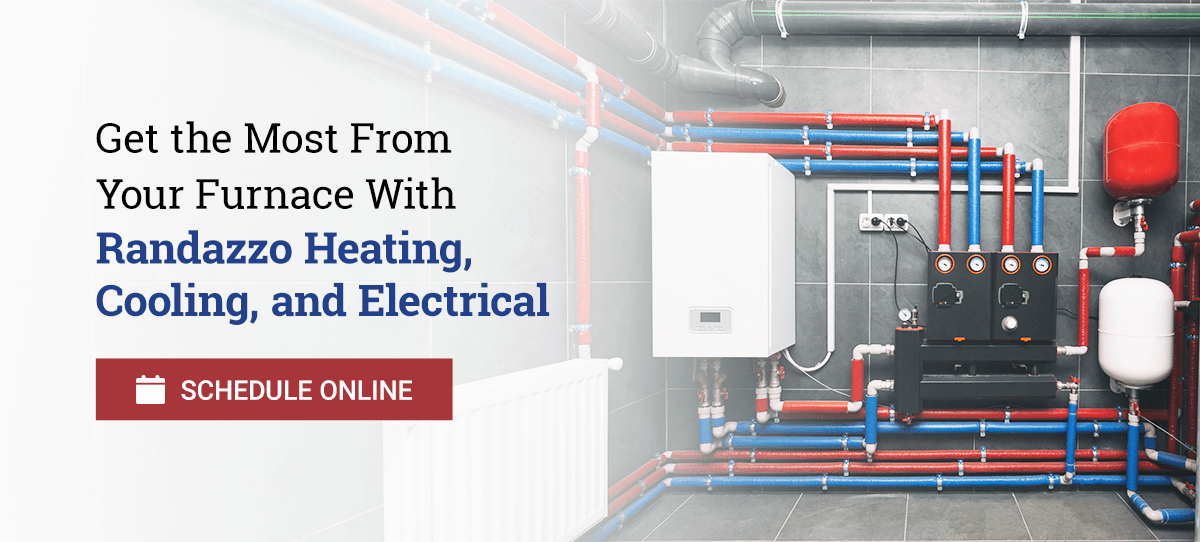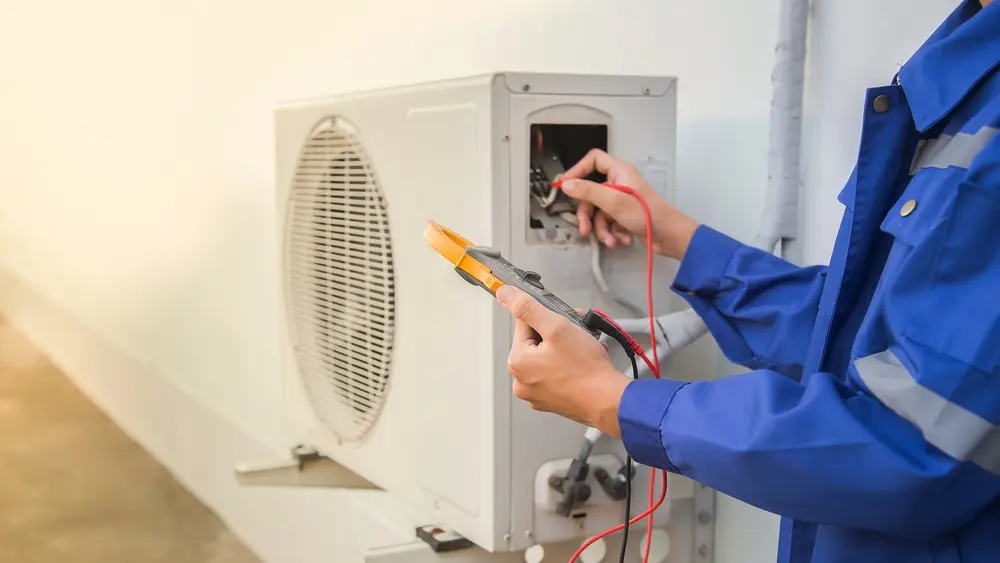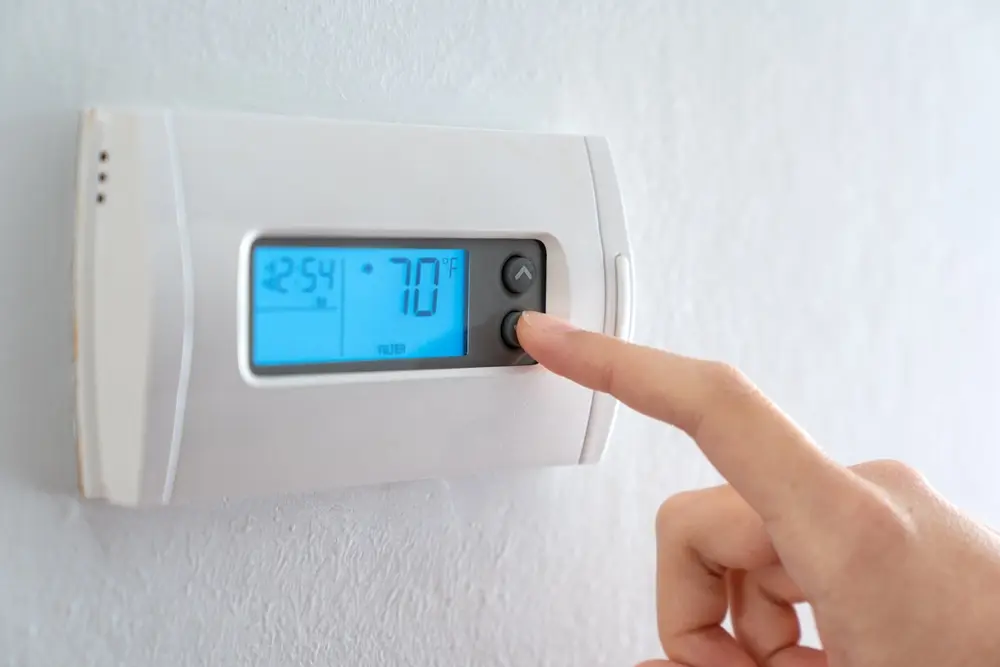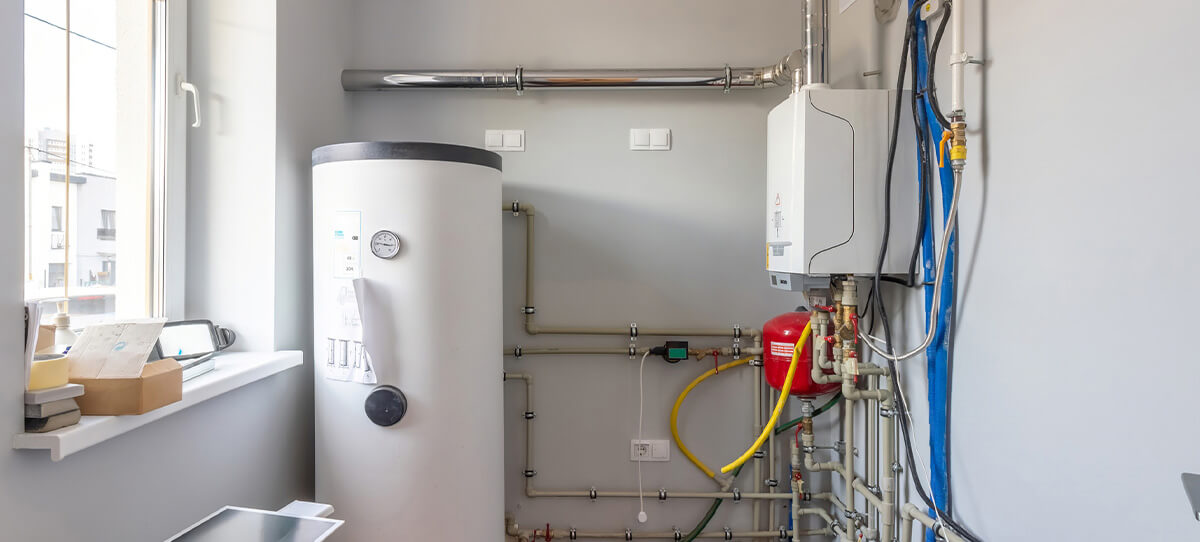
On a cold, snowy winter’s day, a furnace wraps your home or business in a warm embrace. This hardworking hero keeps interiors cozy by circulating heated air. When it comes to furnaces, you have two options — gas or electric. But which is right for you? It all depends on your location, heating needs, and your property’s infrastructure.
This guide compares the pros and cons of gas vs. electric furnaces to help you make the best choice.
A Quick Furnace Comparison
Before deciding between a gas and an electric furnace, it helps to know what sets them apart. Here’s a handy breakdown of how gas and electric furnaces differ:
- Heat generation: Gas furnaces burn fuel such as propane or natural gas to generate heat. Electric furnaces rely on electricity.
- Energy efficiency: A gas furnace’s annual fuel-utilization-efficiency (AFUE) rating shows how well it converts fuel into heat. AFUE ratings range from 78% to 97% for modern furnaces, depending on the unit. Electric furnaces convert 100% of electricity into heat. Their energy efficiency depends on the electricity generation source.
- Heating speed: For quick heating, gas furnaces have the edge. They produce more heat in less time than their electric counterparts.
- Cost: The cost comes down to fuel expense. Gas can be less expensive than electricity in some regions, but gas prices fluctuate.
- Maintenance: Gas furnaces need more frequent maintenance than electric ones. Regular inspections for gas leaks, proper combustion, and part performance are key to supporting safe operation.
- Lifespan: An expertly installed gas furnace can last between 10 and 20 years. The service life of electric furnaces is typically around 20 to 30 years.
- Environmental impact: Gas furnaces burn fossil fuels, which contribute to greenhouse gas emissions. Electric furnaces have lower direct emissions, but their impact depends on the electricity source.
Getting to Grips With Gas Furnaces
Ever wondered how a gas furnace keeps your home cozy in the winter? Gas furnaces rely on a process of combustion and heat exchange to deliver warmth. Understanding their operation, pros, and cons can help you decide if gas is the way to go.
How Does a Gas Furnace Work?
A gas furnace generates heat by burning fuel like propane or natural gas. Fuel enters through a gas valve into a combustion chamber, where a pilot light and burners ignite the gas. The hot combustion gases pass through a heat exchanger. A blower fan circulates cool air across the heat exchanger to warm it. Once heated, the air flows through ductwork back into rooms, and exhaust gases travel outside.
Gas Furnace Pros
If your home or business has a gas line connection, a gas furnace may be the best option. The advantages of gas furnaces include:
- Efficient heating: Gas furnaces warm up spaces faster than electric furnaces. Their rapid heat generation makes them a popular choice for homeowners seeking quick, reliable heating.
- Lower fuel costs: In many regions, natural gas is a more affordable fuel source than electricity.
- High heat output: Gas furnaces produce a high volume of heat, making them suitable for colder climates. Their powerful heating keeps spaces toasty even during the coldest winter months.
- Wide availability: Natural gas is available in many areas, making gas furnaces a convenient option.
Gas Furnace Cons
While they have many benefits, gas furnaces also have some downsides:
- Carbon emissions: When burning fossil fuels, gas furnaces produce carbon emissions that contribute to greenhouse gases and air pollution.
- Potential safety risks: Gas furnaces require additional safety precautions to prevent leaks, including regular inspections and the installation of carbon monoxide detectors.
- Installation requirements: Installation requires a gas line connection, venting, and safety features.
- Higher maintenance: Gas furnaces need more frequent maintenance for safe and efficient operation.
- Fluctuating gas prices: Natural gas prices can fluctuate, impacting heating costs.
Shining a Spotlight on Electric Furnaces
Electric furnaces provide reliable, efficient heating. Smaller properties or those without a gas line connection might prefer an electric system.
How Does an Electric Furnace Work?
An electric furnace is like a toaster for your property. It generates heat by passing electricity through resistance coils. As the coils warm up, a blower fan forces air across them, heating the air. When the air reaches the right temperature, a fan distributes it throughout your home or business via ductwork. Electric furnaces need no vents since they don’t produce exhaust fumes.
Electric Furnace Pros
Electric furnaces offer a clean and efficient alternative to traditional gas heating systems. Their benefits include:
- Lower initial costs: The upfront investment for an electric furnace is often lower than that of a gas furnace.
- More straightforward installation: Installation is quicker and easier than gas furnaces since these models only need an electrical connection.
- Improved safety: Electric furnaces have no risk of carbon monoxide poisoning or gas leaks.
- Less maintenance: Fewer moving parts and no venting result in lower maintenance needs over the lifespan of an electric furnace.
- Longer lifespans: Electric furnaces often last longer than gas furnaces. When problems strike, professional furnace repair services can extend their lifespan.
- Potential eco-friendliness: Furnaces powered by renewable sources of electricity, like solar power, can be an eco-conscious option.
Electric Furnace Cons
On the flip side of the coin, electric furnaces have some potential disadvantages:
- Higher operating costs: Electricity costs can be higher than the price of natural gas in many areas, impacting long-term heating expenses.
- Potentially slower heating: Electric furnaces may take longer to heat a space compared to gas furnaces, though newer electric models heat faster than older ones.
- Strain on the electrical grid: High demand for electricity during peak heating times can strain the electrical grid.
- Lower output: Electric furnaces may not be as effective in cold climates due to their lower heat output.
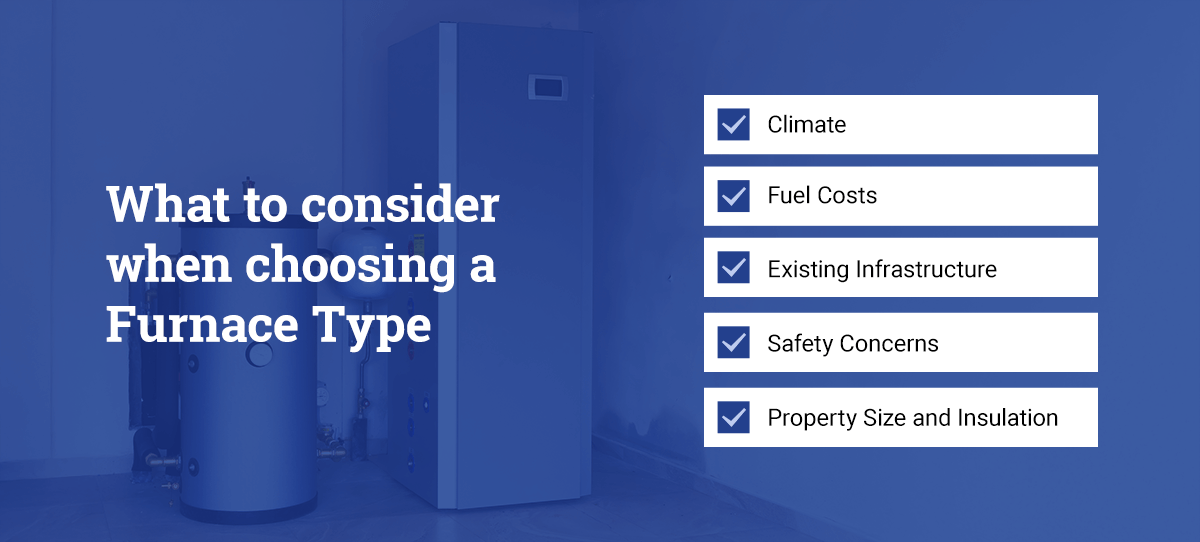
How to Choose the Best Furnace Type
The right choice between a gas and electric furnace depends on factors like your heating needs, local energy costs, climate, and efficiency. Here’s a breakdown of what to consider.
1. Climate
In areas with harsh winters, like Michigan, a gas furnace may be a better option. Higher outputs and faster heating capabilities make gas furnaces a good choice for colder climates. Electric furnaces are better-suited for milder weather.
2. Fuel Costs
The cost of gas vs. electricity in your area can contribute to the best furnace type. Gas typically costs less than electricity. An analysis by the American Gas Association shows that using natural gas can lead to average savings of $1,068 per year compared to electricity.
3. Existing Infrastructure
Installing a gas furnace might be more cost-effective if you have a gas line connection. If you only have electrical connections, an electric furnace might be the simpler and cheaper option.
4. Safety Concerns
Keeping your family or employees safe is a top priority. While both gas and electric furnaces are generally safe, it’s important to be aware of the risks. Gas furnaces pose the threat of leaks and carbon monoxide poisoning. Installing a carbon monoxide detector is essential, and regular maintenance by heating experts can improve your gas furnace’s safety and performance.
5. Property Size and Insulation
Larger homes or businesses need more heating power to maintain a comfortable temperature. Gas furnaces can heat larger areas. A gas furnace can also compensate for heat loss in a property with poor insulation.
Electric furnaces generate enough heat for smaller properties. They work best in well-insulated buildings, since insulation retains heat and reduces the amount of energy needed to warm the space.
Get the Most From Your Furnace With Randazzo Heating, Cooling, and Electrical
Both gas and electrical furnaces have benefits that suit different heating needs. Let the experts at Randazzo Heating, Cooling, and Electrical recommend the right one for you. Since 1988, we have delivered exceptional furnace services throughout southeast Michigan. We can handle every aspect of gas or electric furnace fitment, repair and maintenance.
Call us at 586-271-8003 or contact us online to schedule your furnace service today.

